Joe Dombrowski Q&A: Gearing up for Giro d'Italia debut
24-year-old American currently at altitude camp in Tenerife
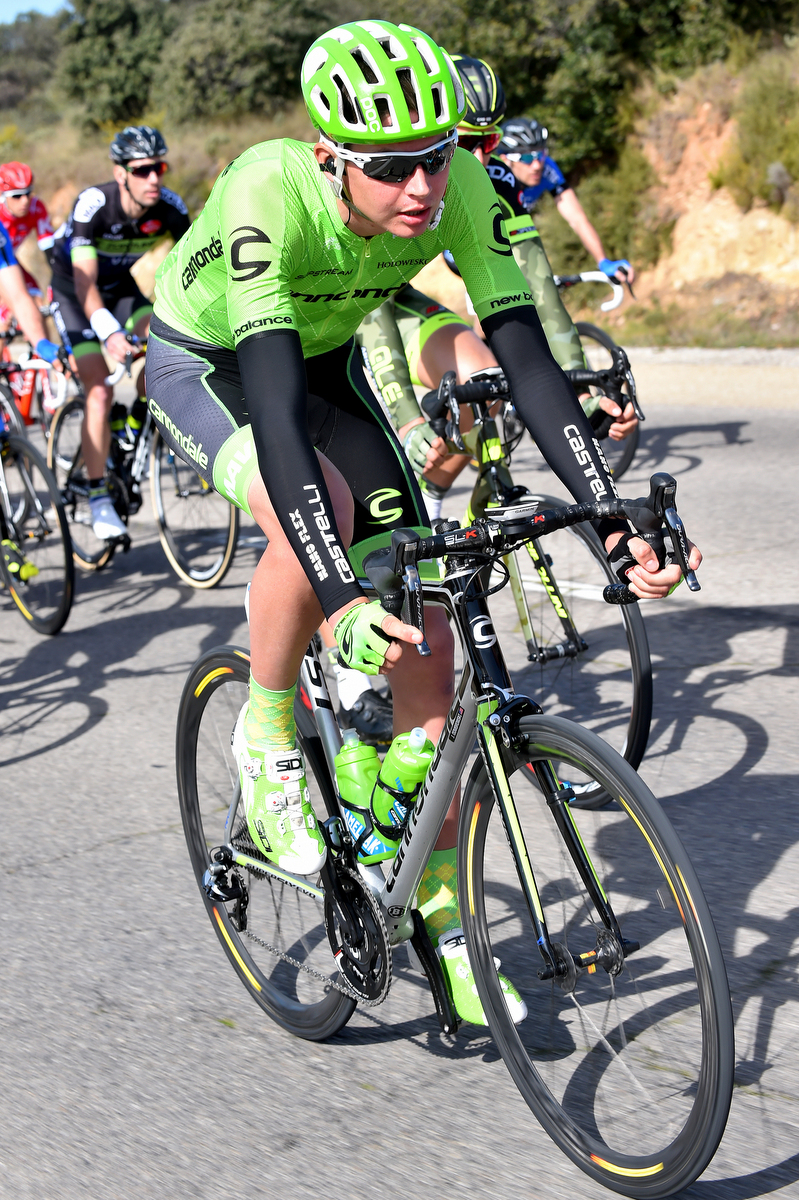
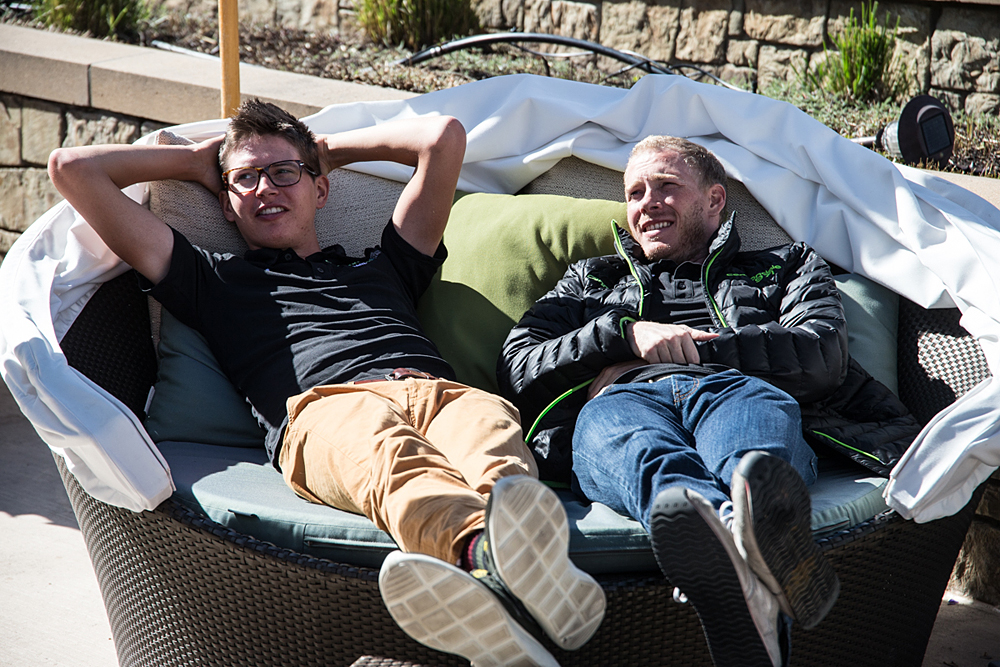
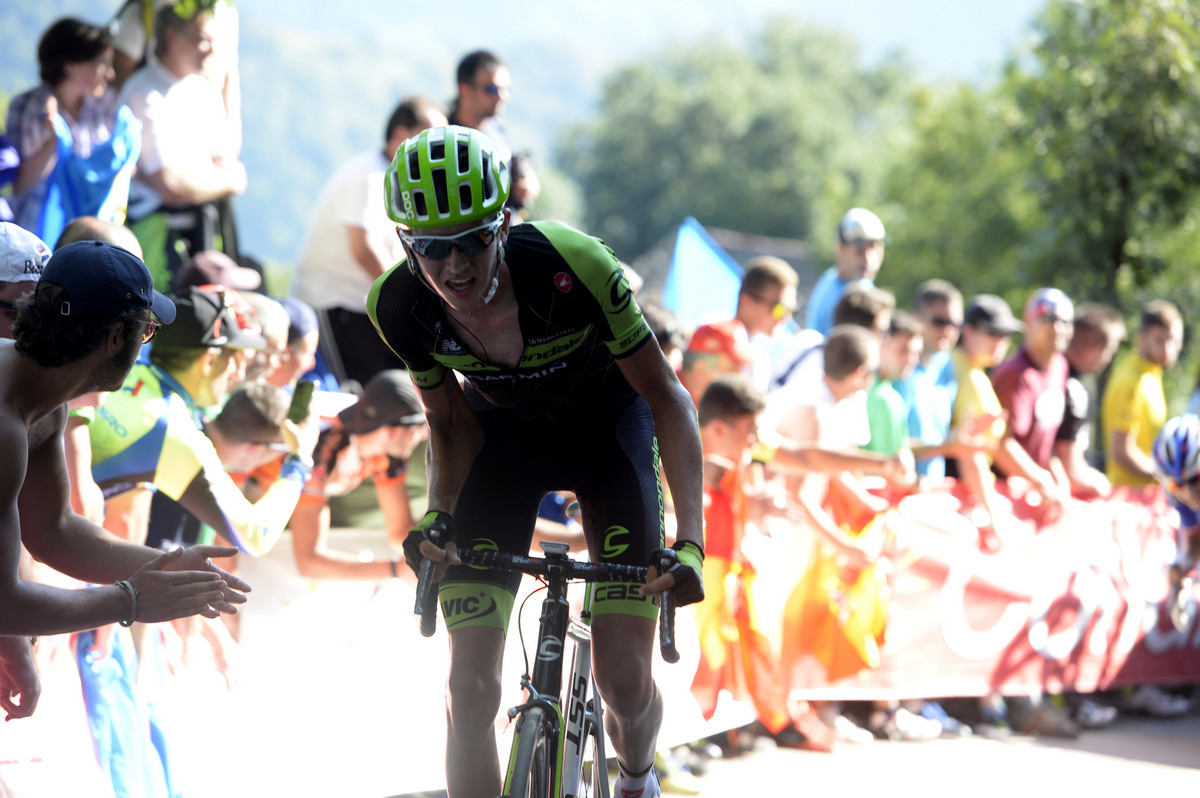
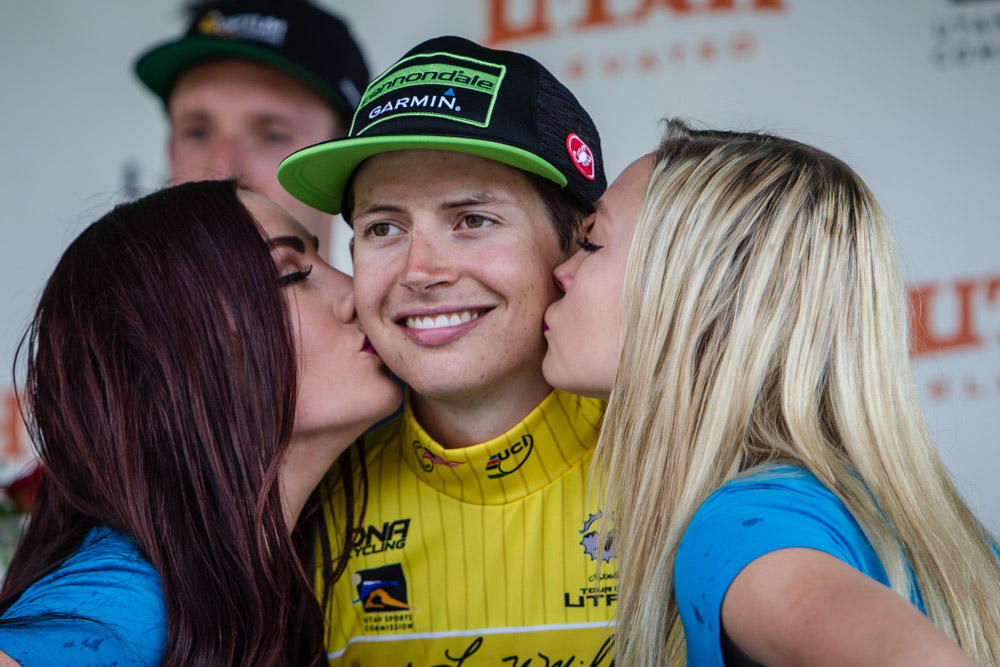
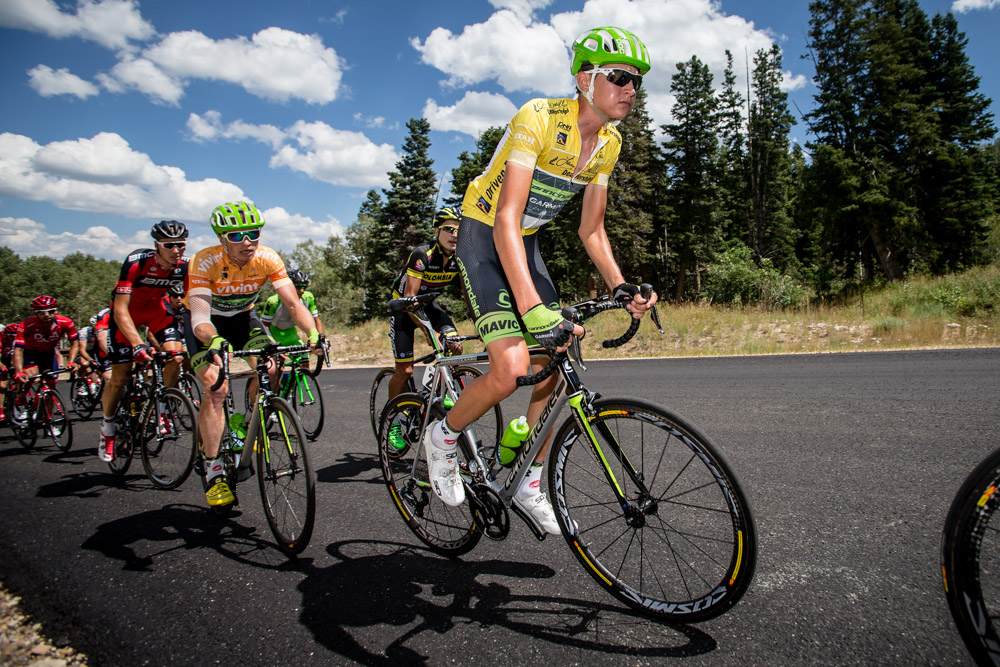
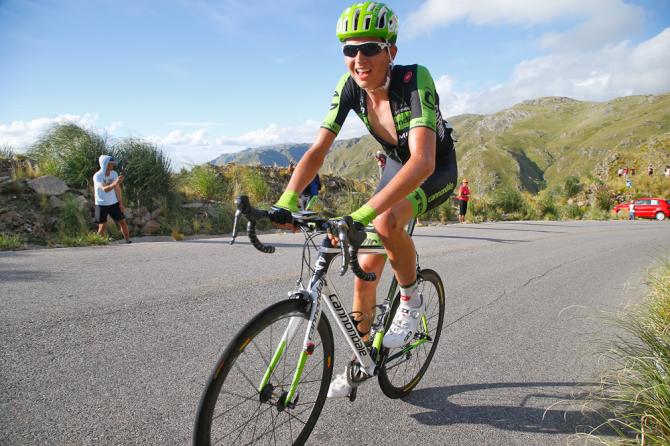
After suffering an injury setback in 2014, Joe Dombrowski got back on track last year as he builds on his potential as a future Grand Tour contender. The former Baby Giro winner claimed his first professional general classification victory at the Tour of Utah and rode his first Grand Tour at the Vuelta a España.
Now in his second year with the Cannondale team and his fourth as a professional, Dombrowski is gearing up for the Giro d'Italia. Cyclingnews sat down with the 24-year-old American in Tenerife as he comes to the end of an altitude training camp.
Cyclingnews: How has the training camp been for you?
Joe Dombrowski: This is my first time here. The riding is great, but it's a little bit limited in that this hotel is the only thing up here, so you either go left or right. The start of the ride is always the same but I'm here for 16 days, and I think for that amount of time it's good. Much longer than that, I think you would get a bit antsy and want to do something else. Sometimes on a rest day, the guys go out to the coast. On my last rest day, I didn't go all the way to the coast, but I went to Orotava and had a look around.
CN: How do you feel coming towards the end of your time in Tenerife?
JD: I'm here until Tuesday, and then I'm back home in Nice for less than a week, and then I do Romandie, and then I'm back to Nice for two days or something, and then I'm off to the Giro. It has been good. For me, it has been doing a lot of volume, and I had a bit of weight to lose so it was about staying on the regime diet wise. Everything has gone pretty well so far.
CN: Do you think you'll reap the rewards at Romandie or are you more concerned about the Giro?
The latest race content, interviews, features, reviews and expert buying guides, direct to your inbox!
JD: The Giro for me is the big focus. If you're going to have a good Giro, you're not going to be that far off in Romandie so if you're way off the mark in Romandie then I don't think something magical will happen, and then you'll have a great Giro. I think that I'm going well performance wise. I'd like to do well in both, but the Giro is the big goal.
CN: What are you most looking forward to about the Giro?
JD: Well, we go there with Rigoberto Uran as our GC guy. We'll be looking after him but for me, personally, I'd like to be up there on the mountain stages helping him. If I can be where I need to be and be strong in the mountain days, then that is what I'm looking to do.
CN: You made your Grand Tour debut at the Vuelta last year, how was that and what can you take from it going into the Giro?
JD: It was good. I like the Grand Tour three-week style racing. It sounds a bit counter-intuitive, but the Vuelta was my first Grand Tour, and I found the third week a bit easier than the first week. I don't get better over three weeks, but I think that a lot of guys fatigued over the three weeks, and I stayed a bit more consistent. I found the third week to be quite a bit easier and having gotten through a three-week race and getting used to how long it is and knowing how to pace yourself. If you're not riding for GC, you have to figure out where to save your energy and where to use it. Then you can get the most out of yourself. You don't have to smash yourself every day to finish 40th.
CN: Do you have your own personal goals in terms of the GC?
JD: I haven't looked at the stages too much. I know that we start in Holland, and I know that we go way south, and then I know the last few stages because my family is coming to watch and it is near where I live in Nice. But, if the first week or so isn't super hard in terms of big mountain finishes then I think that it makes sense not to lose time in a bunch sprint for no reason. I think I will try to be there and see how it goes because sometimes it might work out that you're sitting high up on the general classification, and sometimes shit happens. You have to try and conserve your energy, but you can't deny yourself an opportunity because you're being so conservative. It's not something that you can state overtly beforehand.

CN: There are a few changes in terms of the GC leaders in the team. You've still got Andrew Talansky, but now you have Rigoberto Uran and Pierre Rolland. How have you found working with these guys?
JD: Rigo is one of those guys that fits in anywhere and does his thing. He's not a very high maintenance GC guy. You get him bottles and if it's raining you get him a jacket. Around the peloton, he likes to do his own thing, so he doesn't ask a whole lot. I actually know him from my first years at Sky because we were teammates there. He's a super cool guy and really entertaining, and he has a lot of charisma.
When I heard Pierre was coming to the team, I wasn't sure that he would fit in. He'd been at his team forever, and the French teams are always very French. Everyone is speaking French, and they're a bit old-school. He's fitted in really well, and his English has improved a ton. I remember our training camp in Aspen and he spoke nothing, just hello, goodbye and thank you. Now he's at the level that you can tell a joke, and he understands. He's come a long way.
We're not at the cutting edge of cycling but somewhere in the middle but for Pierre, an altitude training camp was something that he hadn't been exposed to before. He's been really surprised by what we see as modern cycling.
CN: It is your second year with the team, how have you found your time here?
It's been good. In terms of how I fit in here, I really like it. I feel like I'm at home here, and I get along with all the riders and staff. In terms of my position on the team, I'm in a good place, especially if I juxtapose it against where I was in the pecking order at Team Sky. I've got more chances here. If I go to the Giro and we have an outright leader there isn't the pressure on me. But in smaller races, sometimes I'll go to HC or even WorldTour level races, and I'll be the outright leader in the team, and I wouldn't have got that chance at Team Sky, at least not for a while.
Also, being an American team. It's such a Euro-centric sport that it's nice to have a bit more of an American influence. Everything for us is always foreign. It's rare that I get to race in the US, and if you can make that easier on yourself, then that's good.
CN: Development wise, are you happy where you are now compared to where you were when you came into the team?
JD: For sure. When I came into the team I'd spent two years at Sky and in my second year I'd had an injury, and I'd had to have an operation and miss most of the season. It wasn't the most sure footing to start last year, and I wasn't sure how I was going to go, and I lacked a little bit confidence in myself because I missed a whole year and things weren't going great. For the team's perspective, I remember talking to JV [Jonathan Vaughters] at the start of the season and he basically wanted me to have a consistently healthy season. In terms of goals, he said he wanted me to win a stage race in the US. He said I don't know if you're ready in Europe, but I think you can win a California, Colorado or Utah. I was close in California, but then I ended up winning the overall in Utah, so that checked that box. The secondary goal was to do my first Grand Tour, which was the Vuelta, so I think that it was a success.
This year is just building on that. I'm going to the Giro and not just looking at it like I did with the Vuelta and trying to get through it and have my first experience of three-week racing but actually go there with a performance objective. Even if that doesn't mean my own results but helping Rigo, it's something more defined. Later in the season, I'll target a one-week race maybe in Europe, but I'd like to go back to Utah and defend there. I want to build on last year and become more consistent as a stage racer.
CN: What is your programme following the Giro d'Italia?
JD: I have no idea. I imagine I'll do one of the races after the Giro. It's dependent on how you come out of the Giro. You could come out of the Giro flying and go to any of these June races and you can have a good result but then you can come out of the Giro, and then you're sick and tired, and you need to take a break there. Whatever happens, I know that there will be a break in there because this block is pretty hefty and it's hard to stretch it out for the whole season.
CN: Your contract with the team is up this year, are you planning on staying put?
JD: I hope so. I like it here. I haven't really started the process of talking to teams but, for me, it would be nice to get it done around when the Giro ends. Because then you have the break, and you don't want to start the talks when the break ends, and then you're into September and August. Then you're stressing because you want to ride well because you contract is up, but it's a bit late in the year. Ideally, you want to strike when the iron is hot, and if you have a good Giro then it's done, and you don't have to stress about it for the rest of the year. Not that it's the go-ahead to turn off and be lazy for the rest of the year, but the stress of worrying about getting a contract isn't going to contribute to your performance.
Born in Ireland to a cycling family and later moved to the Isle of Man, so there was no surprise when I got into the sport. Studied sports journalism at university before going on to do a Masters in sports broadcast. After university I spent three months interning at Eurosport, where I covered the Tour de France. In 2012 I started at Procycling Magazine, before becoming the deputy editor of Procycling Week. I then joined Cyclingnews, in December 2013.